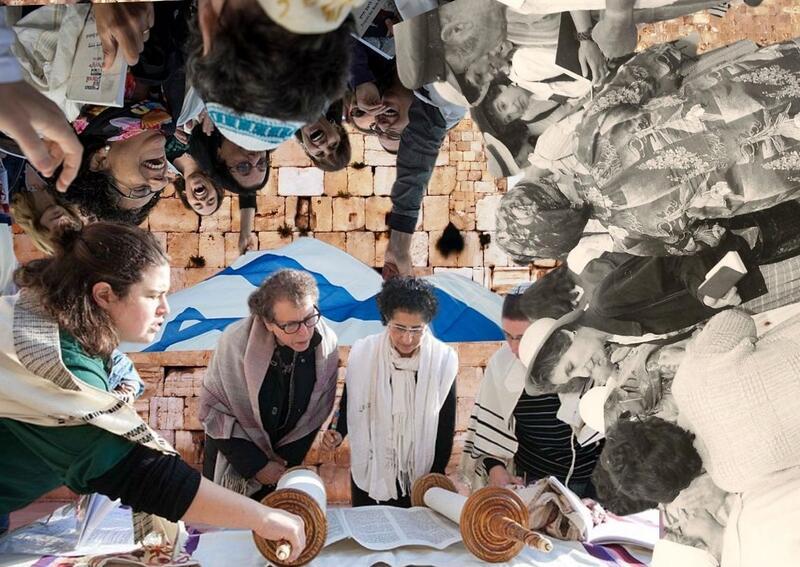Anat Hoffman and Jewish Women’s Access to the Kotel
Anat Hoffman is an activist that focuses her fight on equality for women within Judaism. Hoffman’s resiliency and activism inspire me, as someone who has attended an Orthodox Jewish school where I was not allowed to lead prayer services or read from the Torah. Her work opens me up to the possibility of finding a Jewish space outside of Orthodoxy where I can feel empowered to take on a leadership role.
The Jewish practice of tikkun olam, (literally, repairing the world), helped inform much of Hoffman’s activism. I too hope to “fix” the world in any way that I can, whether through my journalism or science research. Most notably, she is the founder of Neshot HaKotel (Women of the Wall). For her work at Women of the Wall (WOW), she was named the 2013 Person of the Year by Haaretz, an Israeli newspaper.
WOW, founded in 1988, advocates for women’s religious rights at the Kotel. They fight for women to be allowed to wear a tallit or other religious garments, lead prayers, and read from the Torah at the Kotel. They hope to empower young women around Israel, and they petition the Israeli government to legally recognize the right of women to pray in these ways.
In 2000, the Israel Supreme Court voted in their favor. This ruling was subsequently overturned in 2003. But the court ruled that WOW could renovate Robinson’s Arch for egalitarian prayer services. Unfortunately, the Court then withdrew this ruling, claiming that the renovation was not “done in accordance to the specifications,” and in 2012 and 2013, Hoffman and other members of WOW were arrested for wearing tallitot at the Kotel. Although I have never worn a Tallit myself (and, at the moment, do not plan on wearing one), I have always felt empowered when I watched women at my camp push past these gender norms to wear a Tallit. After these arrests in 2012 and 2013, the court ruled in favor of WOW. Rabbi Shmuel Rabinowitz, the administrator of the Kotel, still prevented women from using Torah scrolls at the Kotel, even though there are a hundred scrolls in use by men. Women were also not permitted to bring outside scrolls to the Kotel, so WOW must sneak them in.
Anat Hoffman and WOW began advocating for a third, equal, and pluralistic section of the Kotel that would not be under the authority of Rabbi Rabinowitz. Negotiations lasted for two and a half years until it was finally approved by the government in 2016. However, the ultra-Orthodox community in Israel erupted in protest over this ruling, insisting that this decision be revoked.
As someone with an Orthodox background, I believe that the ultra-Orthodox community should be able to pray at the Kotel in a way that aligns with their religious identity. However, I also understand that one's religious practices are a deeply personal journey, and no one should impose their beliefs on others.
The government has still not implemented this pluralistic section. Today, Robinson’s Arch serves as an egalitarian section at the Kotel (though it is not touching the original wall).
The Kotel, the focus of Women of the Wall’s activism, is the most important spiritual and religious site for Jewish people. If women do not have equality at the most holy place for Jewish people, how can they have equality anywhere else? Hoffman and WOW use the Kotel as a symbol for equality in Judaism everywhere.
Hoffman’s activism goes beyond her success at WOW. She began her activism while at UCLA, where she was exposed for the first time to Judaism outside of Orthodoxy. This moment for Hoffman reminds me of my own discovery of pluralistic Judaism. When she returned to Israel, she was inspired to advocate for pluralism within Judaism, and helped found Kol HaNeshama, a Reform synagogue in Jerusalem. Hoffman also represented the Civil Rights and Movement at the Jerusalem City Council from 1988 to 2002, opposing the politics of Jerusalem’s ultra-Orthodox community.
Since 2002, she has been the executive director of the Israel Religious Action Center (IRAC) founded in 1987, IRAC serves as the legal arm for Reform Judaism in Israel. In this role, Hoffman promotes equality, justice, and religious freedom. She also led a campaign in 2015 that fought against ultra-Orthodox Jewish men who expected that seated female passengers give up their seats on flights because they did not feel comfortable sitting next to women.
A couple of years ago when I was questioning my own religious values, my parents discussed her campaign at the dinner table. Hearing about her campaign had a significant impact on my confidence and ability to forge my own religious path.
Although Hoffman’s work focuses on equity within Judaism, her fight for equality has inspired me to lead services and read from the Torah, something outside of my comfort zone. She can also inspire young women all around the world to advocate for themselves in whatever male-dominated spaces they find themselves.
This piece was written as part of JWA’s Rising Voices Fellowship.







